House plants help improve air quality in our living spaces by giving off oxygen. The atmosphere in your home determines your physical, emotional, and mental well-being.
When the air around us is clean, our quality of life improves.
Places with the greenest vegetation have the freshest air, which most people strive to re-create in their homes.
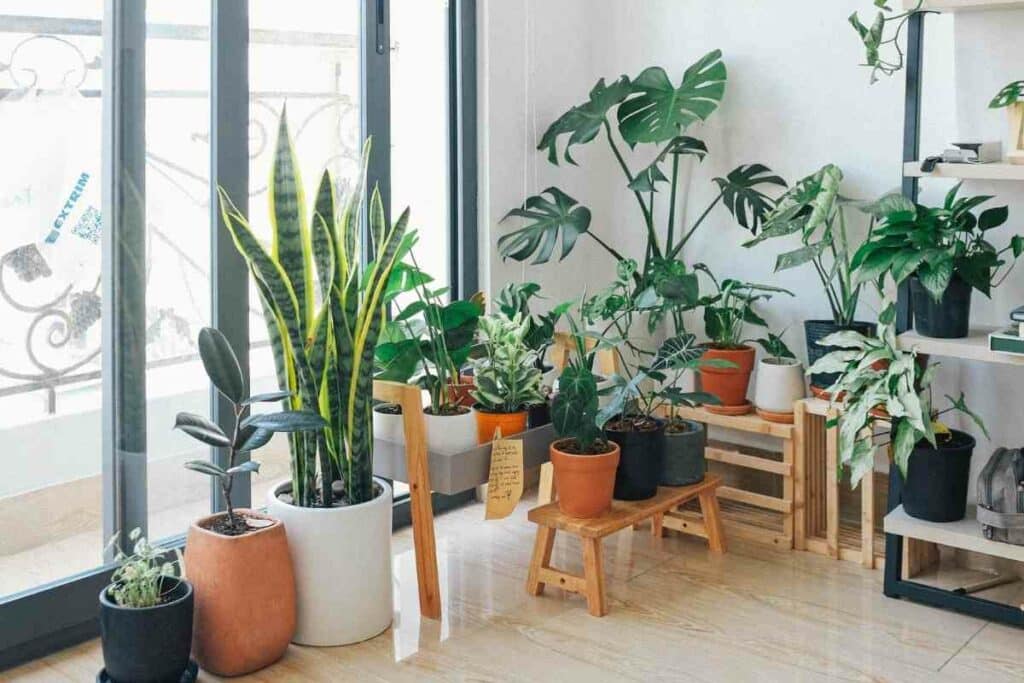
The current levels of air pollution, especially in urban areas, are high. Respiratory illnesses like asthma, sinuses, and breathing difficulties have increased due to air pollutants.
Besides allowing fresh air to circulate through our homes by keeping our windows open, indoor plants can also purify the air by supplying clean oxygen.
House plants with many large leaves are the best as they produce the most oxygen during photosynthesis.
Photosynthesis is a molecular process where plants use water, carbon dioxide, and light to produce oxygen. Large house plants require sufficient sunlight to produce oxygen.
Keep In Mind – It’s essential to keep the plants where they can acquire the most light and air. Above all, select a house plant that will thrive in the amount of light available in your home.
Which Plants Give Off The Most Oxygen?
Aloe Vera Plant
Aloe is a succulent green-colored plant that grows mainly in the drier parts of Asia, America, Europe, and Africa.
It is among the few plants that produce oxygen at night, perfect for bedrooms.
The leaves are thick, wide, and pointed with a dense clear gel inside with medicinal properties.
Apart from releasing oxygen into the air, the aloe vera is well known for removing formaldehyde and benzene from the air in your home.
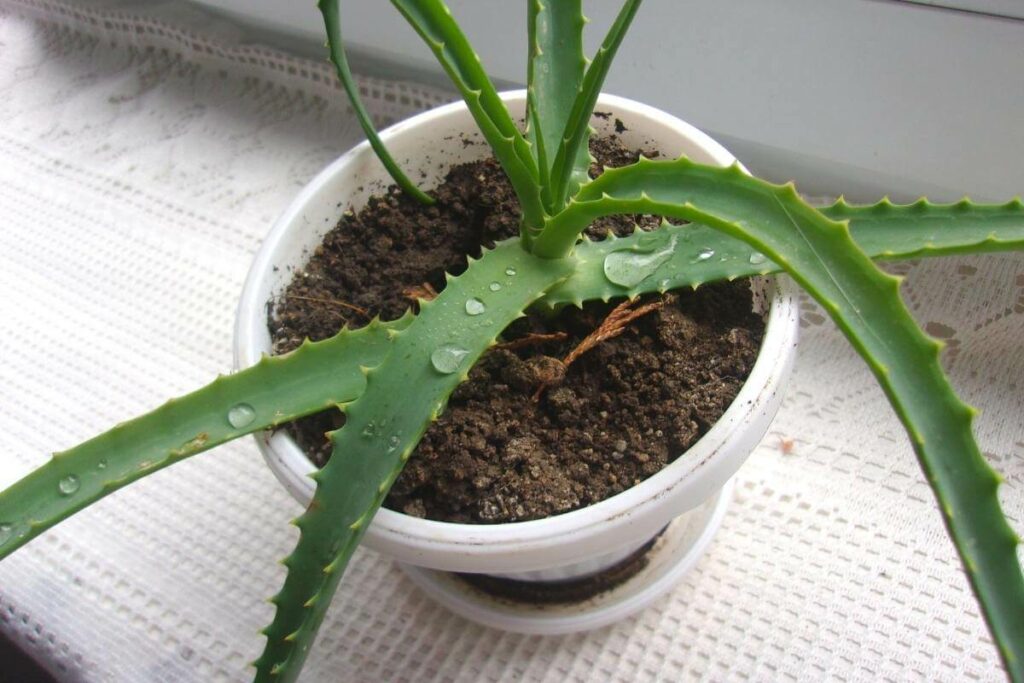
Benzene and formaldehyde are vaporous chemical compounds released by standard home cleaning supplies, building materials, furniture, and everyday home use products.
The aloe plant can also remove xylene, a sweet-smelling compound in printing materials, leather products, furniture varnishing, and paint thinners.
Benzene is common in house paints, rubber, and plastic, among other solvents. Formaldehyde is in flooring, especially laminate, furniture, and wall insulation materials.
To properly benefit from the aloe vera air cleaning properties and oxygen production, purchase a few pieces to place in all the rooms in your home.
Aloe vera plants grow slowly and need minimal sunlight and water.
The Boston Fern
Botanically referred to as Nephrolepis exaltata, thisis a sword fern species plant characterized by curved fronds or leaves, unlike other straight frond fern species.
They are excellent indoor plants that give off oxygen into living spaces and are non-toxic to cats and dogs.
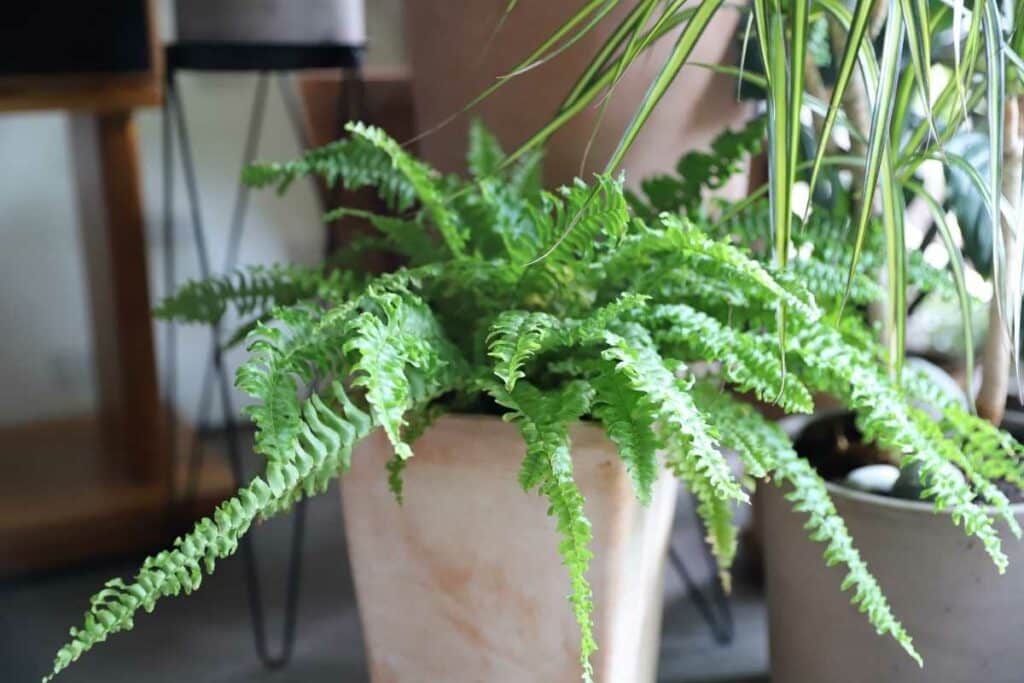
These beautiful plants can be hung around your home for air purification and oxygen throughout the day.
The Boston fern plant helps get rid of toxins such as formaldehyde in the air around your space.
It is best to grow them in a cool corner of the house where they receive sunlight for a few hours.
The Boston fern originates from a humid area and requires humidity to flourish.
Gerbera Daisy
Gerbera daisies are attractive flowers from the daisy family. Their smooth green petals and bright multi-colored flowers are popular as house plants.
Apart from their beauty, they are part of the few plants that produce oxygen at night.
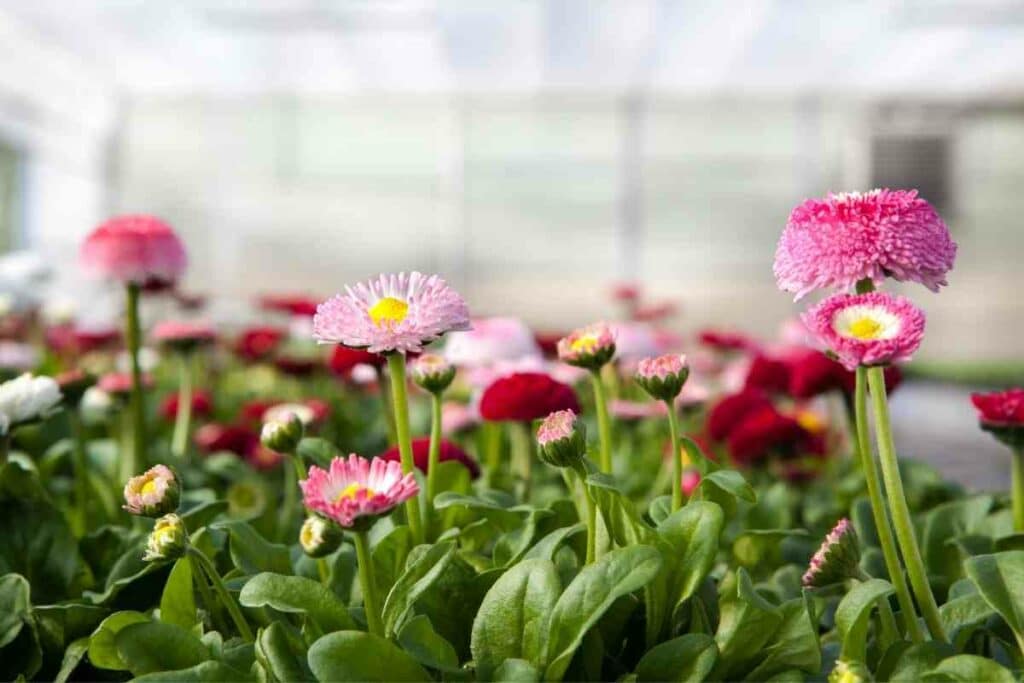
The gerbera daisies’ can purify the air from pollutants such as formaldehyde, trichloroethylene, and benzene.
Respiratory-related illnesses are reduced in a household as gerbera daisies help eliminate dust particles and reduce excess carbon dioxide, especially during the night.
For adequate oxygen supply, consider placing them in bedrooms or bedsides.
Spider Plant
The botanical name for the spider plant is Chlorophytum comosum. It has long, thin green-yellow leaves that hang like a spider’s legs.
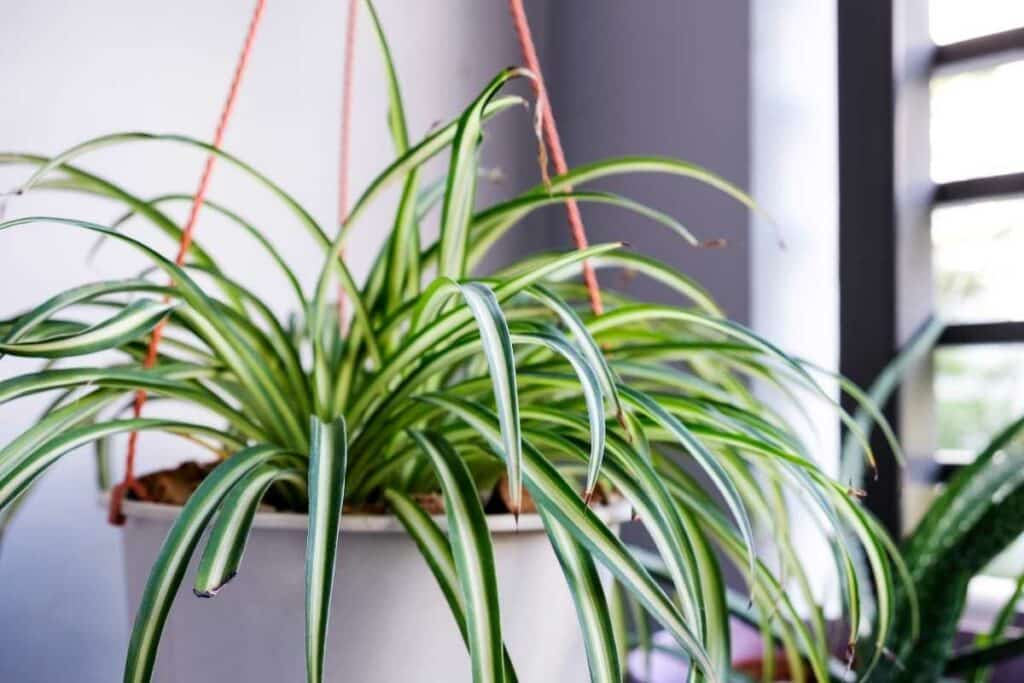
Spider plants are ideal house plants as they give off the most oxygen and soak up the toxins in the air.
The spider plants absorb odors, fumes, and vapor toxins such as formaldehyde, xylene, benzene, and carbon monoxide, giving your home fresh air.
Heartleaf Philodendron
Philodendrons are popular house plants that give off oxygen and purify the air.
Harmful chemical pollutants such as formaldehyde are absorbed well by heartleaf philodendrons.
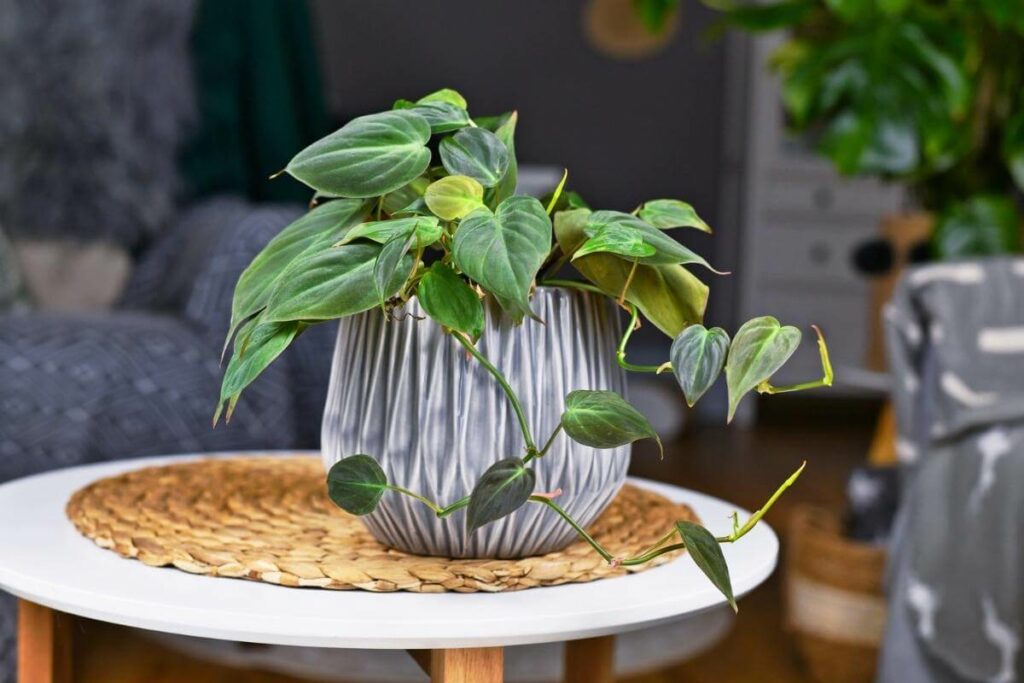
Their big dark green heart-shaped leaves produce a good amount of oxygen and will clean your air properly if planted in large pots around the house.
They require a little bit of sunlight and water to thrive indoors.
Chinese Evergreen
The Aglaonema or Chinese evergreen plants are some of the highest oxygen-producing plants and purify the air against harmful chemicals and pollutants.

When placed in the living area, they clean the air we breathe. Their high oxygen levels help remove formaldehyde and benzene toxins.
These plants grow well in shaded areas and on moist soil. You can have as many as you want around your home.
Golden Pothos
Botanically called Epipremnum Aureum, the golden pothos plants quickly grow indoors. It gives off oxygen and purifies the air around you.
Pothos plants absorb exhaust fumes, toluene, xylene, benzene, and formaldehyde around your garage and utility room.
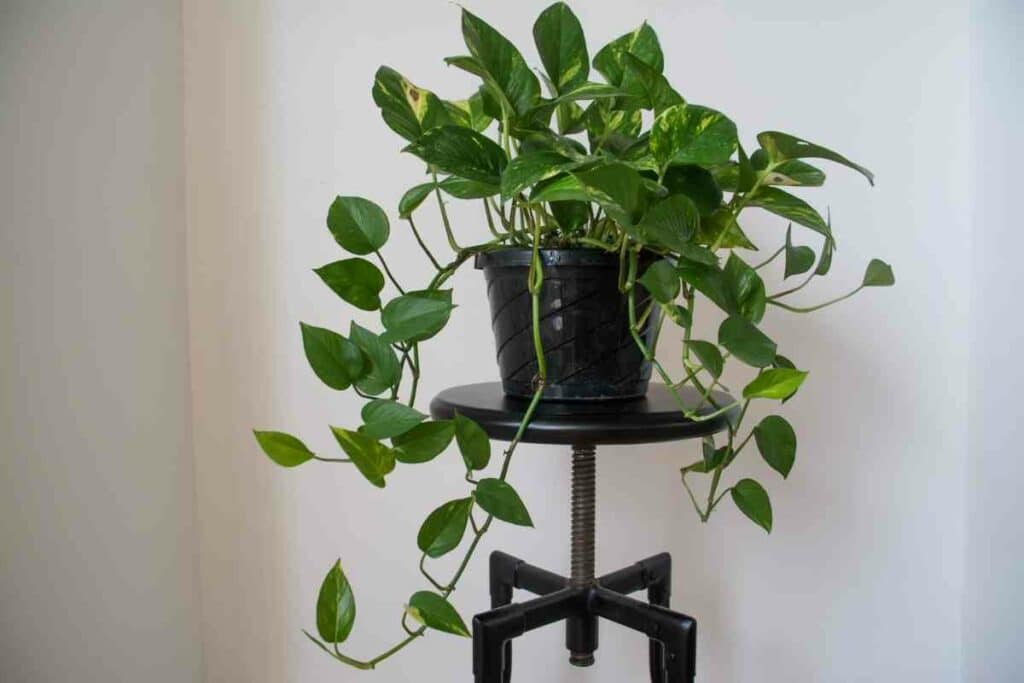
Their large green leaves produce a good amount of oxygen 24 hours so ensure you pot several plants to maximize their benefits.
Plant them in well-draining soil as they do not require a lot of water. Cool temperatures and direct sunlight are ideal for pothos plants.
Japanese Peace Lily
Scientifically known as Spathiphyllum, the peace lily is a flowering plant that makes wonderful house plants as they produce oxygen at night.
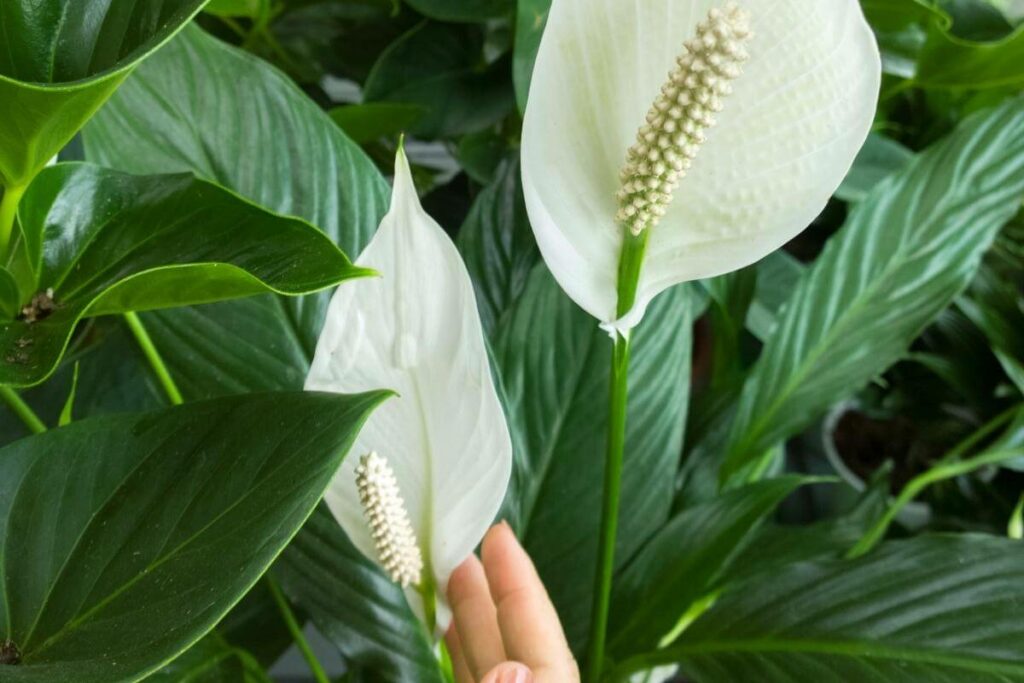
It removes harmful chemicals around the living spaces.
Place it along the hallway or high humid rooms to absorb ammonia, benzene, xylene, toluene, trichloroethylene, and formaldehyde.
It is also a beautiful green plant that produces white flowers. Peace Lillies grow well in moderate lighting, watering, and well-draining soil.
Weeping Fig Plant
The Ficus Benjamina plant is an appealing green plant that gives off oxygen and purifies the air.
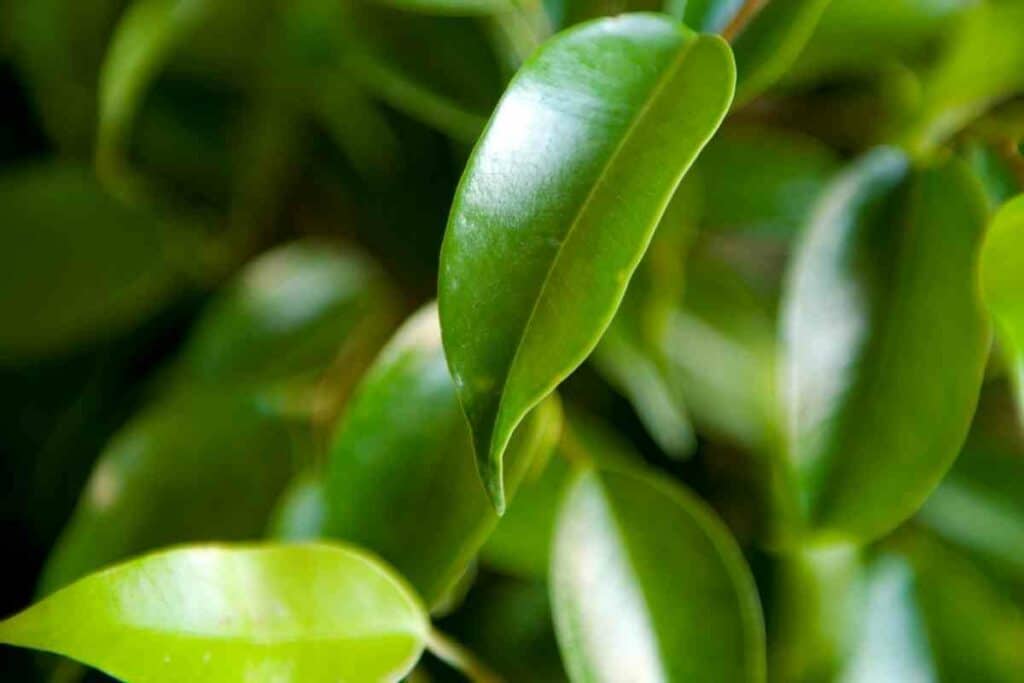
It cleans out xylene, toluene, and formaldehyde, which are harmful chemicals from the air.
Some of them can grow up to 10 feet tall but consider the short ones that grow to about 3 feet for your home.
The long green leaves are excellent for oxygen production and only require little watering and sunlight. Avoid moving it around as it quickly sheds its leaves when disturbed.
Areca Palm
Scientifically known as Dypsis lutescens, the Areca Palm plant is among the highest oxygen producing indoor plants and cleans the air.
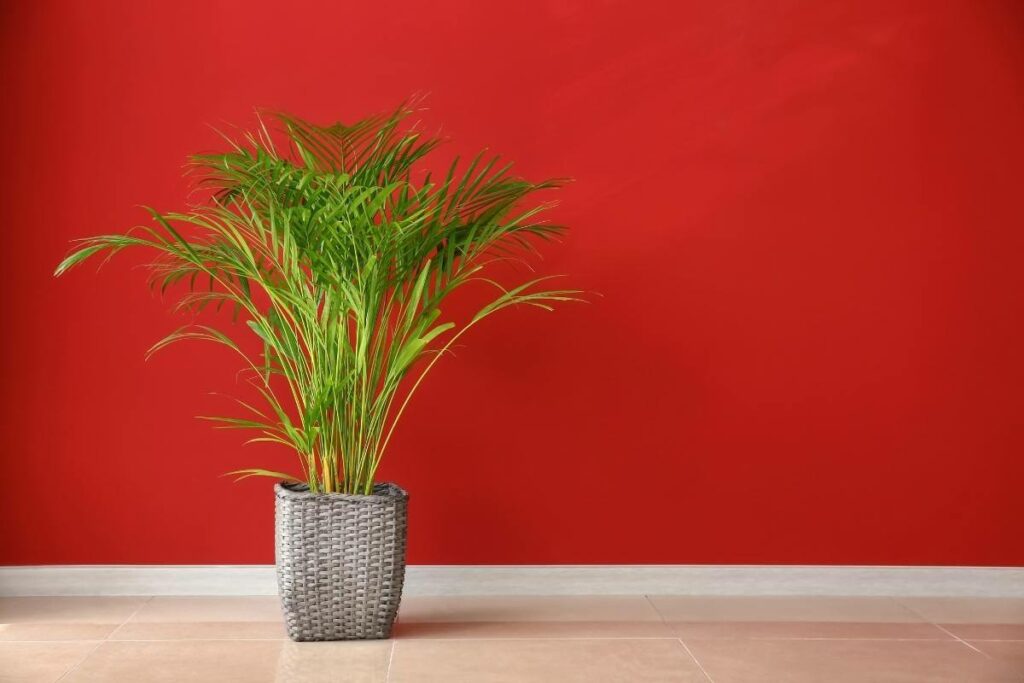
Different varieties of the Areca are golden palms, yellow palms, or butterfly palms.
They help with the proper development of infants due to the removal of harmful toxins from the air, preventing common respiratory illnesses.
It’s best to plant several areca palms around your home for high oxygen levels.
Snake Plant
The botanical name for the snake plant or mother-in-law’s tongue is Sansevieria Trifasciata.
These giant plants are among the top air purifiers and oxygen-emitting indoor plants.
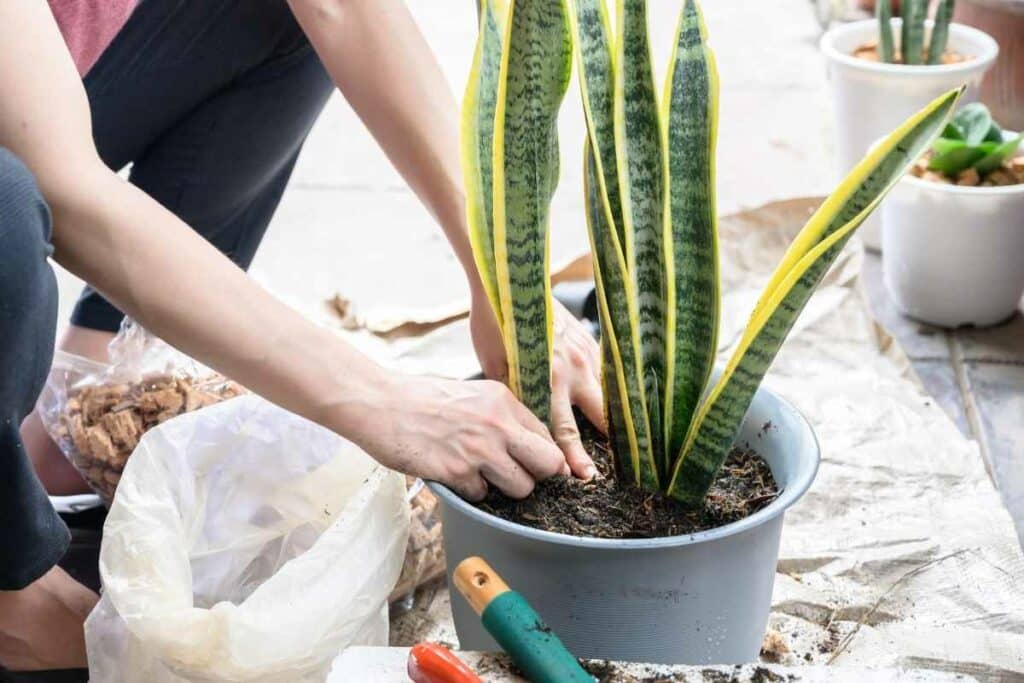
There are two different variations of the same species, but both remove harmful toxins from the air.
Snake plants are green, while the mother-in-law’s tongue plant has yellow stripes.
Snake plants absorb:
- xylene
- toluene
- formaldehyde
- trichloroethylene
- and benzene
It is an easy plant to maintain as it does not require much watering.
Frequently Asked Questions about plants that give off oxygen
Are there plants that release oxygen at night?
Yes. Most plants release oxygen during the day when photosynthesis occurs.
However, a few plants give off oxygen at night but in small amounts compared to daytime.
Most of the ones listed above produce oxygen at night, apart from the Chinese evergreen, Areca palm, and the Boston fern plant.
Is it okay to sleep with plants in your bedroom?
You can sleep with plants in your bedroom but only those producing oxygen at night.
Limit the number of plants on your bedside at night to prevent the accumulation of carbon dioxide.

Which plants will give 24 hours of oxygen?
Although a few plants can produce a little oxygen at night and absorb carbon dioxide, there are no plants that give off oxygen 24 hours a day.
With exposure to any light throughout, plants can produce oxygen through photosynthesis.
However, this will inhibit their development as they require a natural environment to grow effectively.
Which plants purify the air the most?
Chrysanthemums. Although most house plants purify the air by absorbing toxins, a few of them can clean ammonia from the air.
Chrysanthemums have a higher ranking in air purification due to their ability to absorb almost all toxins and pollutants, including ammonia.
Are plants better than air purifiers?
Yes. Although plants will not clean the air at the same speed and intensity as air purifiers, they absorb more carbon dioxide naturally.
They are also cheaper and add beauty to the home, creating a peaceful and healthy environment.
The concentration levels and productivity of the people around them improves.
Final Thoughts
Besides giving off oxygen, house plants beautify your home and fulfill you for taking care of a living organism.
Tending to indoor plants gives the caregiver intense joy and calmness, which improves your overall well-being.
Your nervous system, immunity, and concentration are enhanced when you breathe in enough oxygen and clean air around you.
Overall, house plants with broad leaves have enough surface area to produce more oxygen as they have more stomata for photosynthesis.
Absorbing toxins is also easy, especially in small spaces.


